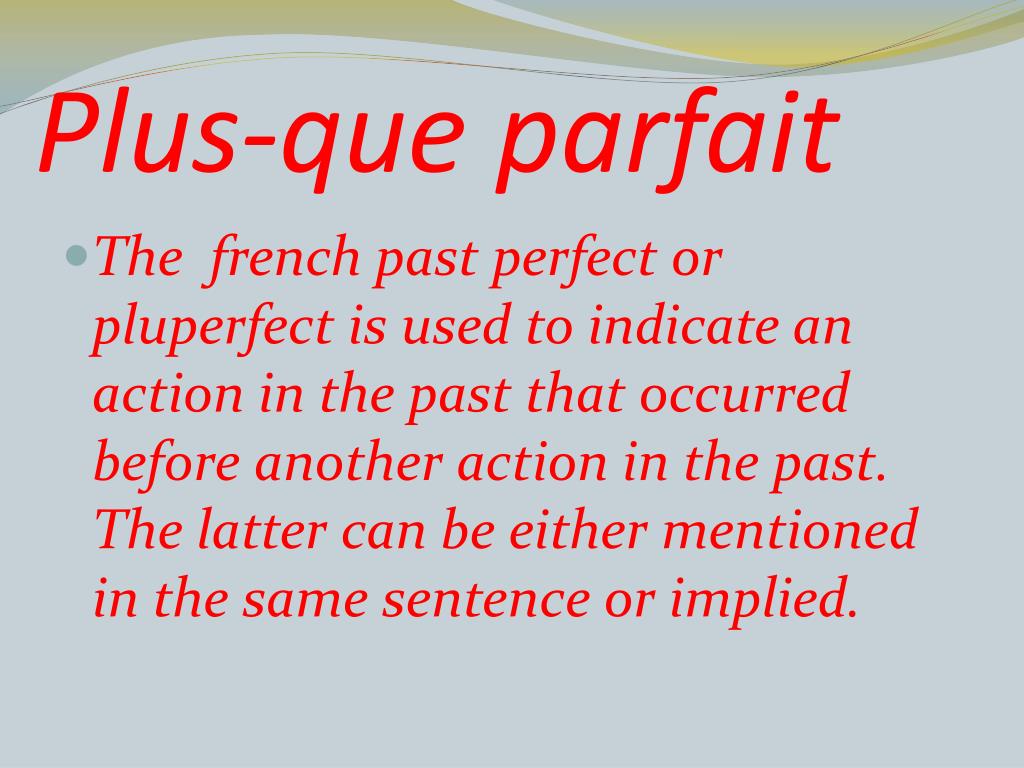
For example: I had vomited twice already before my m other came in and found me with my head in the toilet. If we wanted to express that the vomiting had been completed even before some other action, then we would use the past perfect: I had vomited. For example, while the past tense (a number of past tenses and aspects, actually) in English could be expressed as I vomited, the perfect would be I have vomited. To expand on that a bit: the perfect, in grammatical terms, is used (in English, at any rate) to refer to an action that is completed.

The word derives from the Latin plus quam perfectum, “more than perfect” – the Latin perfect refers to something that occurred in the past, while the pluperfect refers to something that occurred “more” (further) in the past than the perfect. I find it easier to do that if I understand why a tense is called what it’s called, so let’s look at the Wikipedia page on the plus-que-parfait: If you want to talk about any of the compound tenses with your French teacher, you’re going to need to be able to remember their names. It’s what we call a compound tense (see this post for an introduction to compound tenses and what makes them interesting). (More on vomiting below.) In English, we call it the past perfect. This is the French tense (technically, it’s an aspect, but I’ll try to leave the technical stuff out of this) that corresponds to things like I had vomited in English.

Picture source:, who put it together from images on the excellent Tex’s French Grammar web site, at. The passé composé, imparfait, and plus-que-parfait contrasted.


 0 kommentar(er)
0 kommentar(er)
